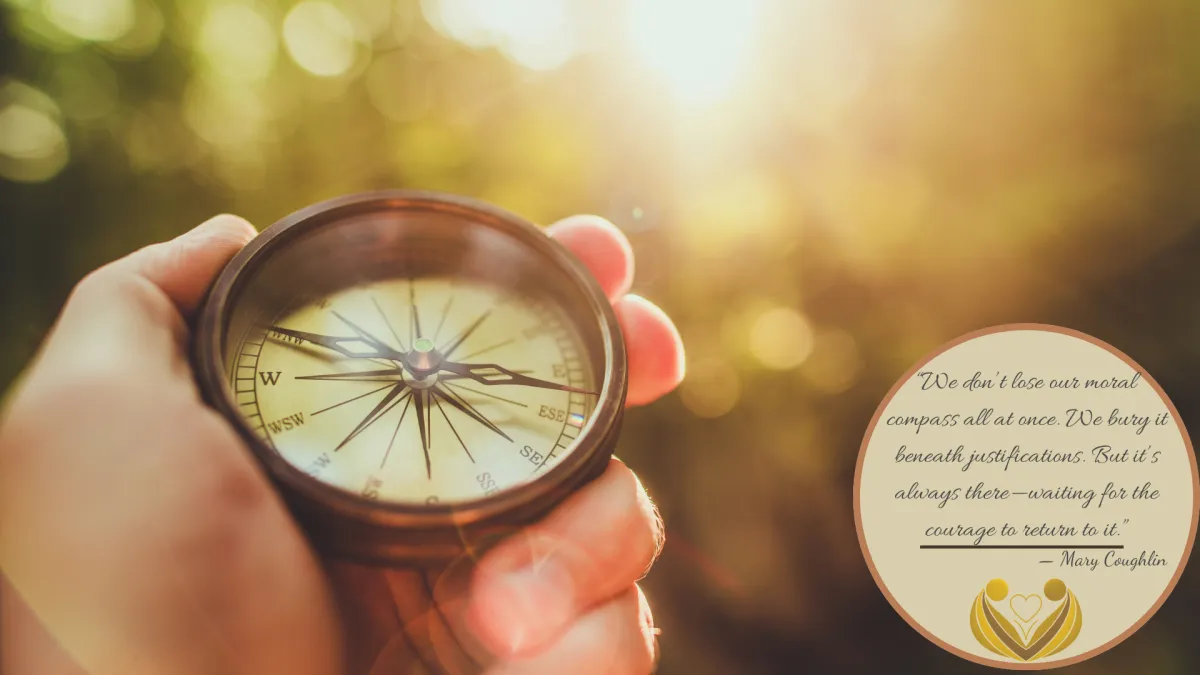
The Day I Knew
“We don’t lose our moral compass all at once. We bury it beneath justifications. But it’s always there—waiting for the courage to return to it.” - Mary Coughlin
The Day I Knew
An Invitation to Remember, Reconsider, and Return to Ourselves
I remember the moment with absolute clarity.
It was 2016. A hot mic, a bus, and a man boasting about grabbing women without their consent.
He wasn’t sorry.
He wasn’t ashamed.
And he wasn’t misunderstood.
He was crystal clear.
And in that moment, so was I.
That was the day I knew.
This man—Donald J. Trump—had no business holding any position of power.
Not because I disagreed with his politics.
But because I saw, in plain view, a contempt for humanity that I could not unsee.
But What Shook Me Even More?
Was not what he said.
It was how many people were willing to excuse it.
To downplay it.
To dismiss it as “locker room talk.”
To reframe it as strength, candor, or “just how men are.”
Some even celebrated it.
And in doing so, something broke—maybe not in them, but in the social contract between us.
Because I believed that decency still mattered.
That we were trying, collectively, to become better.
So Here’s What I’m Wondering:
When did we stop believing that character counts?
When did integrity become optional?
When did cruelty become a campaign strategy?
And when did we become so numb to harm that we confuse power with leadership, and abuse with strength?
This is not a call-out. It’s a call inward.
If You Excused It Then—
Or Find Yourself Excusing Similar Behavior Now—
I’m not here to shame you.
I understand that trauma, fear, identity, and belonging are powerful forces.
And sometimes we tether ourselves to the person who promises protection—even if they harm others to provide it.
But I am asking you to stop.
To pause.
To check your compass.
Not your political affiliation.
Your moral orientation.
The quiet truth that lives beneath the noise.
Because This Isn’t About One Man
This is about all of us.
What we accept.
What we ignore.
What we normalize.
And what we choose to protect—at what cost, and to whom?
The truth is, harm doesn’t become less harmful just because it’s wrapped in patriotism, religion, or policy.
And no election, no policy win, no financial gain is worth the erosion of our collective conscience.
An Invitation to Re-Orient
This isn’t a demand for guilt.
It’s an invitation to return to your deepest values.
To consider who benefits when you silence your discomfort.
To ask: What kind of world am I helping to create—by what I ignore, excuse, or endorse?
We are not powerless.
We are not stupid.
And we are not beyond repair.
But healing begins with remembering.
And remembering begins with telling the truth.
“You can’t wake up someone who’s pretending to sleep.” — Navajo proverb
If you’re awake, stay awake.
If you’re pretending, it’s time to rise.
The future is watching.
In truth and transformation,
Mary
